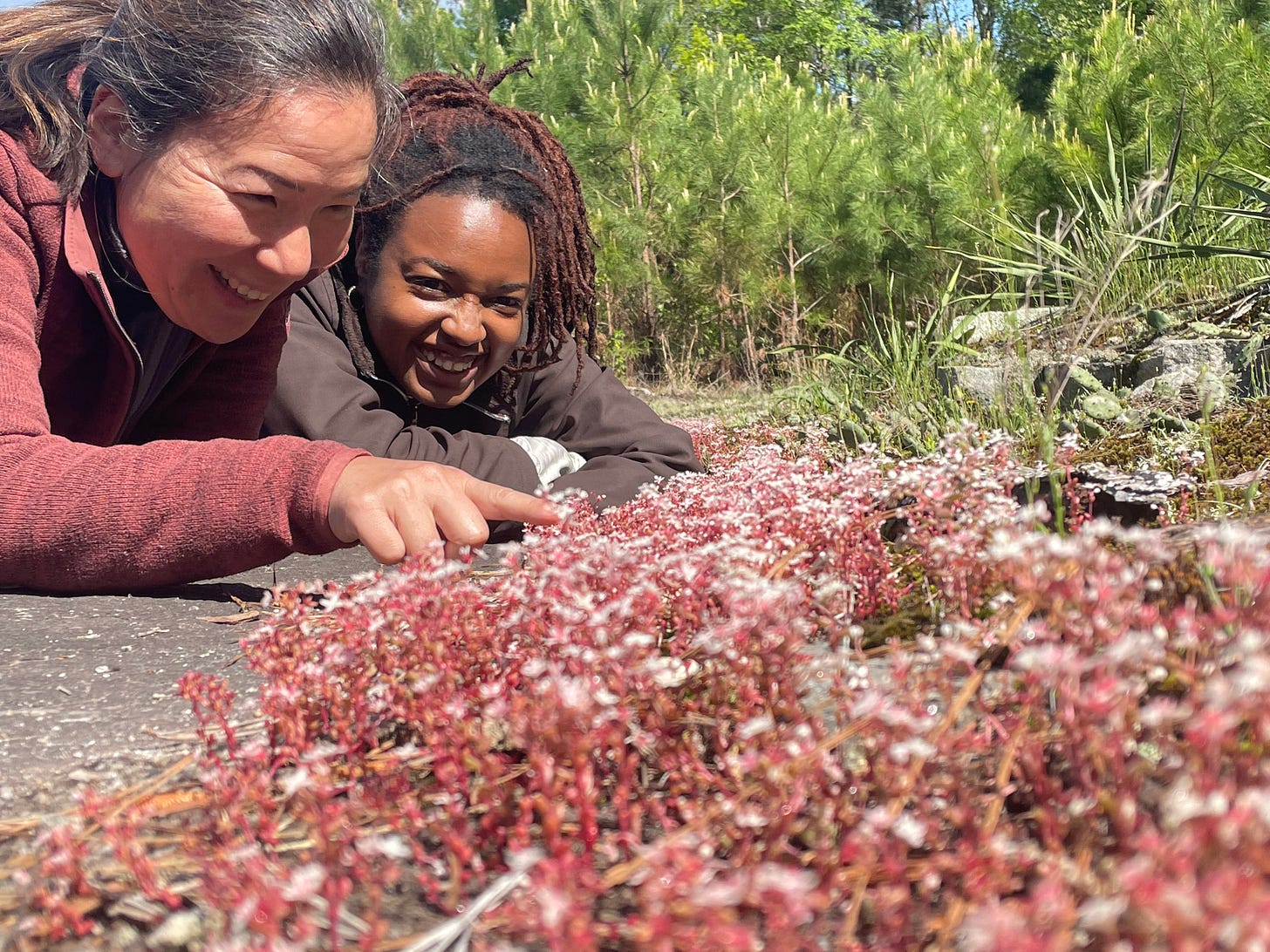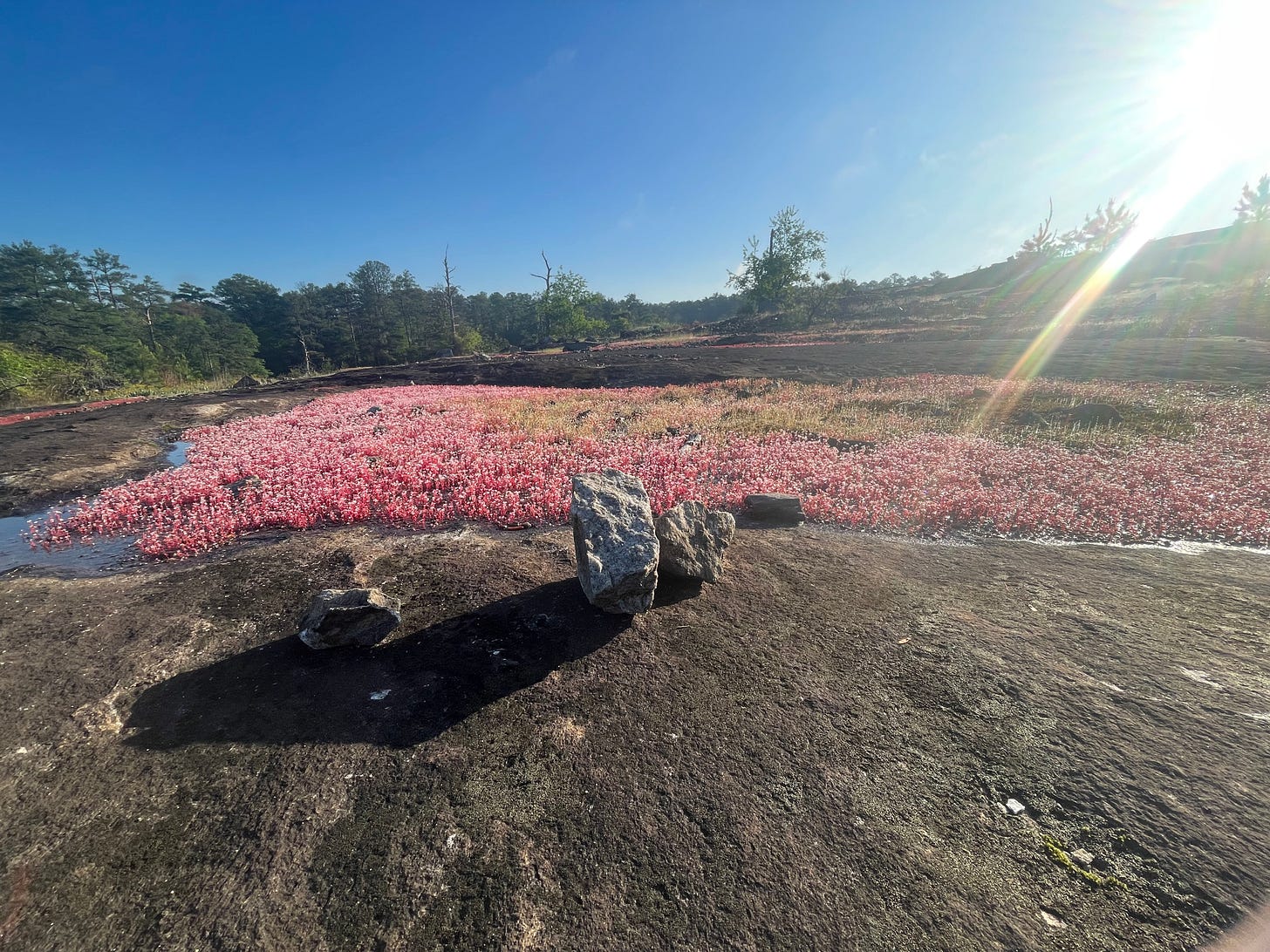Earth Day Reflections on How We Can Adapt to Meet the Moment
I remember telling myself that I would never take biology again.
I remember 14 year old Asile at boarding school, sitting around that wooden circular table in biology class, surrounded by taxidermy hawks and the reflections of a giant whale skeleton suspended from the ceiling. I remember the feeling of dissociating from my body, from the classroom, from the New Hampshire cold, and transporting my imagination towards another place and time. My body was present in the class, nodding along at the material being projected onto the smart board from my classmates. I’d even go as far as to say that my mind was also present, trying to follow along the best that I could despite feeling very in over my head. My spirit, though — deep down in my spirit was the thought that none of this information on phylums and classes of the kingdoms animalia and plantae would ever ever be relevant to my life, so what was the point? I ended up getting a D in the class (and ironically, an A- in beginners mandarin that same semester).
So imagine my inner 14 year old Asile’s surprise when, fast forward over ten years to this past week, I am waking up at 6:30am to hike up Arabia Mountain for the first time and witness a once-in-a-year plant sighting. I dont quite know what I’m getting myself into for real, but I trust my mentor and friend that invited me to join them. Plus, I have been craving a spontaneous departure from my normal weekly routine, and the universe always provides — even at 7:00am on a Friday morning!
This isn’t any old morning hike, because we are embarking a journey up Arabia mountain during what I have learned is one of the major spectacular moments where Mother Nature puts on a show and lays out the red carpet — literally. For only about two weeks of the entire year, a rare diamorpha flower blooms across the stone canvas of Arabia Mountain, making the mountain’s stone canvas flourish in a ruby red carpet of color. Because of the heat due to high summer temperatures, these little three inch flowers have adapted to what is called a ‘reverse growing season’, so instead of the typically life cycle where plans begin growth in the spring and die in the winter, diamorpha actually do the opposite and begin their growing process in the fall, and are dead by the summer. They adapted to withstand the conditions.
What lessons can we learn from Mother Nature to withstand what seems to always feel like unprecedented times? There is an omnipresent fear of the unknown, and on the surface it seems easier to cling to the familiar for the sake of comfort. It may seem easier to remain in our comfort zones and not take risks, even if there is growth on the other side of the risk being taken. When my family was making the decision to send me to boarding school at 14, we were definitely taking a risk, and while staying in Atlanta would have seemed like the easier and more normal option, my boarding school experience propelled my intelligence and interpersonal skills to incredible heights.
I believe that the current political moment is asking us to take a big risk — and that risk lies in our willingness to adapt. To adapt to a new way of working so we can sustain ourselves and wither the heat of the times we are in. Adaptation requires us to recognize that the current way is not working, and to be okay with letting it go in order to make space for something new.
Many of us are experiencing unimaginable grief and loss in this moment, whether it be due to personal losses or grief of the dying hope and faith in our political systems to center humanity over greed. What if we allowed this grief to have the space that it needs so we can plant new seeds for the world we want to live in? What if we moved past denial and transitioned towards accepting that a new way is not only possible, but necessary in order to survive and sustain? What if, like the ruby red diamorpha flowers, we listened and learned from our environment and adapted to meet the moment?
In Emergent Strategy, adrienne marie brown provides her wisdom as a social justice facilitator and points us towards nature to help us shape the futures we want to live in. In it, she quotes Walidah Imarisha who notes:
“The only lasting truth is change. We will face social and political storms we could not even imagine. The question becomes not just how do we survive them, but how do we prepare so that when we do suddenly find ourselves in the midst of an unexpected onslaught, we can capture the potential, the possibilities inherent in the chaos, and ride it like dawn skimming on the horizon?”
I am an Atlanta girl through and through, yet I’d never been to Arabia Mountain, which is only about 20 minutes away from where I grew up. It’s a going joke for ATL natives to say that we don’t mess around in the outskirts of the city. Deep down there is an assumption that for whatever reason, maybe a lack of safety or perhaps a fear of the unknown, that the ‘outskirts’ just aren’t for us. I felt the same sitting in biology class in high school, that the learning just wasn’t for me.
But nature is for everybody. The Earth is abundant and has enough for us all. And, nature has some of the blueprints that we need to sustain, just like the diamorpha have adapted to reverse growing seasons in order to withstand the times.
On this Earth Day and beyond, I encourage us all to look to our surroundings, our communities, and our planet, to inspire us to step out of our comfort zones and be open to the possibilities of adaptation. And maybe, like the diamorpha flowers on Arabia Mountain, we can sustain ourselves and flourish beyond belief.





